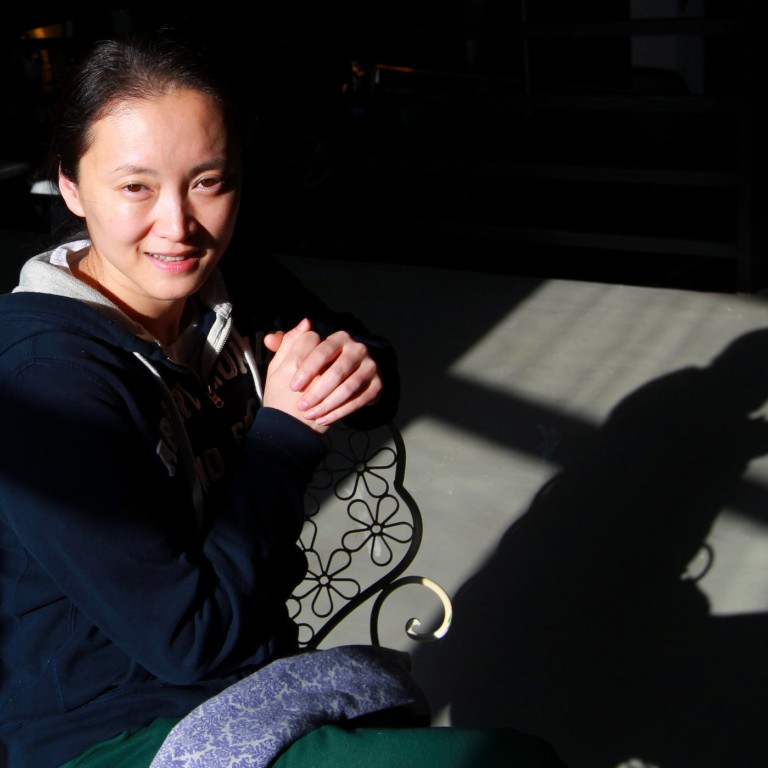
Censorship and soft power pressure 'stifling China's arts'
Artists say regulators' oversight is hindering the chance to promote Chinese culture globally
Wang Yuanyuan, the director of the Beijing Dance Theatre, was traumatised when the mainland tour of her ballet production was suspended by regulators last year. She has now become much more cautious through fear of falling foul of the censors again.
"We don't want such things to waste the enormous amount of effort we put in," the internationally acclaimed choreographer said. "But once you have such worries, you begin to limit yourself in what you feel you can do, and then you can't truly explore your artistic potential."
The ballet was inspired by the classic - and banned - erotic novel of the same name and was a hit at several festivals around the world, including the Hong Kong Arts Festival in 2011.
Wang said a revised production was later allowed to go on tour in the mainland under a different name.
She saw no problem with the original production, which she said was an artistic representation of the novel without the graphic sexual content contained in the book. The censors thought otherwise, and recorded copies of any future productions have to be vetted before the ballet can be put on stage.
This conflict between artists and regulators poses a dilemma for the Chinese government. On the one hand, it wants to maintain a tight ideological grip on the arts, while also increasing its "soft power'' by promoting Chinese culture overseas.
Wang said there should be more support and protection for artists to produce works that were "truthful to their own hearts''.
"If a Chinese artist or writer has a prominent role on the world stage, they help people form a view of China," she said. "We represent how the world sees China, but we don't want to work under too many restrictions."
Artists like Wang are anxious to see what, if anything, the arts and media reforms announced after the Communist Party Central Committee's third plenum last month will mean for artistic expression on the mainland.
Measures advanced by party leaders included lifting ownership restrictions on arts, media and publishing companies. But party officials said they would continue their strong oversight in the sector.
Zhang Xiaoming , a cultural studies expert at the Chinese Academy of Social Sciences, said the government believed market-oriented reforms of the arts and media would lead to greater creativity.
But he said the authorities must release details of long-awaited reforms to the way the films and the media are vetted by the government.
"The authorities must move on with these policies as they are some of the core issues that will have a greater bearing on reform of the cultural industries," he said.
Zhang said the government was worried that its cultural influence overseas had fallen and failed to keep step with the nation's rapid economic growth.
Efforts to promote Chinese culture abroad had been ineffective because many people overseas viewed the projects as simply propaganda, Zhang said.
Under the "Going International" campaign, China has spent billions of yuan on initiatives such as a global network of Confucius Institutes to promote the study of Chinese language and culture, plus the expansion of state-owned media outlets overseas.
State broadcaster China Central Television has set up two studios overseas and it has also become the only television network in the world to broadcast in all six UN official languages. On top of these initiatives, the government has spent heavily on overseas tours of state-funded art troupes.
Beijing Foreign Studies University associate professor Qiao Mu agreed that government-funded efforts to promote Chinese culture overseas had failed because they were often viewed as propaganda.
He said non-governmental institutions should be given a more prominent role in promoting Chinese arts because they knew the market and their potential audience.
Jasmine Jiang, the producer of the Beijing Modern Dance Company, said mainland policymakers' approach in promoting the nation's culture overseas was misguided because most government-funded productions feature acrobatics, martial arts and songs and dance which only represented the more traditional side of Chinese culture.
The group has performed at many top theatres and arts festivals around the world, including the John F. Kennedy Centre for the Performing Arts in Washington and the Venice Biennale.
But Jiang said that as an independent arts troupe, they had been struggling to stay afloat right from the company's beginnings 18 years ago and did not even have a theatre of their own for rehearsals because of a lack of funding.
Jiang said Chinese government leaders overseeing the cultural sector should look to France for inspiration. The French successfully promote a wide range of cultural products, including the nation's arts, food and wine, Jiang said.
"I remember that one French cultural attaché once said China can no longer afford to regard Chinese acrobatics, Peking opera and the giant panda as the only essence of Chinese culture," she said. "It's a wake-up call."
